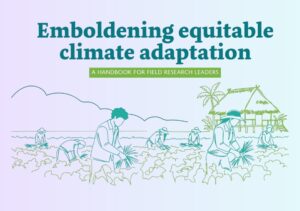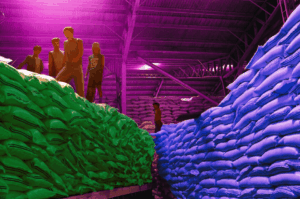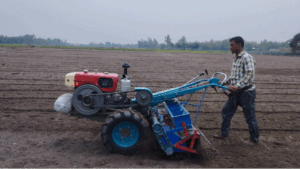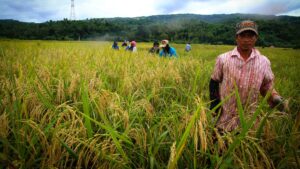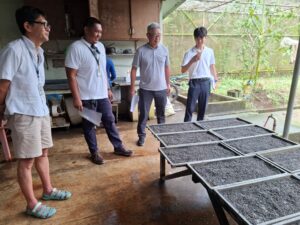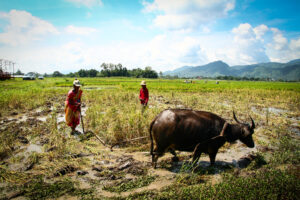A Philippine senator urged the country’s farmers to move away from subsistence farming toward farm enterprise management and development to increase their income and productivity. The call came as the country faces a possible food crisis brought on by the war in Ukraine.
The Philippine Chamber of Agriculture and Food Inc. earlier cautioned of a possible food crisis this year after several countries stopped exporting wheat to the Philippines.
The senator also called on the government to increase the Department of Agriculture’s budget and reduce the “propensity” for importing food as this should only be a stop-gap measure.
Read the story @ABS CBN News
More on making farming more productive:
A physician-turned-farmer with a mission to modernize rice farming
A medical doctor who is also a farmer not only adopted the laser land leveling technology but piloted a service provision model for it—a first of its kind in the rice granary region of the Philippines. His story outlines the next steps that optimize partnership and active engagement of key players to ensure sustainable uptake of mechanization initiatives in the country.
Profit efficiency of smallholder vegetable farms in Nepal: Implications for improving household income
Vegetable farming is an important sub-sector to increase income, reduce poverty, and improve nutrition, particularly in developing countries. Although Nepal’s vegetable farming is dominated by smallholders, it is gradually changing from subsistence to commercial type. Improving productivity and profitability in agriculture is central to making this sector economically sustainable. This requires an understanding of technical, allocative, and economic efficiencies, and the factors determining them.
Adaptive cropping systems in the Charlands will increase food production and farm income in Bangladesh
Scientists have tested and identified improved and climate-smart crop varieties and cropping patterns for the Charlands of Bangladesh. These improved crop varieties and cropping patterns, based on several socio-economic and environmental factors and suitability testing, will not only increase the overall crop production of Bangladesh, but also increase the agricultural and farm income, and improve the livelihoods of the people residing in those areas.


